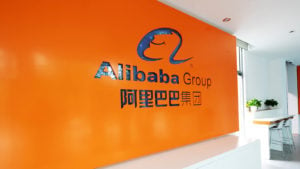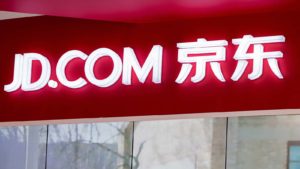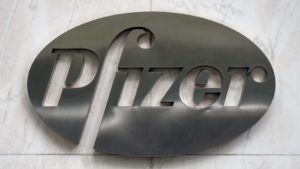The first focuses on elevating the return on invested capital (ROIC) and shrewd capital allocation, gearing up to fortify profitability and competitive prowess. The second one charts a course for enhanced user engagement and loyalty through customer-centric initiatives and an expansive platform ecosystem. The third one represents robust innovation in therapeutics and strategic acquisition plans, laying the groundwork for amplified market presence, particularly in oncology.
Overall, the article unveils the strategic moves of these industry leaders, which provides a glimpse into the potential unfolding growth.
Alibaba (BABA)

Alibaba (NYSE:BABA) aims to lift its ROIC into the double digits, focusing on optimizing capital allocation and efficiency. The focus on enhancing ROIC indicates a strategic intent to improve profitability by allocating capital to projects or businesses that generate higher returns. Thus, efficient capital utilization amplifies shareholder value and strengthens Alibaba’s competitive position.
Additionally, intending to invest cash flow for growth potential suggests Alibaba’s proactive stance towards identifying and seizing strategic prospects. The clarity of focus emerging from the reorganization highlights numerous growth opportunities for investment. Alibaba’s strong balance sheet empowers the company to capture these opportunities, invest in edgy innovation, expand into emerging markets, and bolster its competitive edge. Hence, this forward-looking approach ensures that Alibaba remains at the forefront of technological advancements and market evolution.
Furthermore, Alibaba’s utilization of $67 billion (Q2 fiscal 2024) in non-core assets and low-growth investments demonstrates a focus on maximizing shareholder value. The strategic reassessment of non-core assets aligns with the company’s focus on optimizing its portfolio by divesting or restructuring assets that do not align with core business strategies. Thus, monetization efforts can free up capital for more strategic investments, acquisitions, or returning value to shareholders through dividends or share buybacks.
Finally, existing share repurchase plans and initiating an annual dividend signal Alibaba’s focus on enhancing shareholder value. The $13 billion available in the share repurchase program and the annual dividend announcement reflect management’s confidence in the company’s cash-generating ability and its focus on rewarding shareholders.
JD (JD)

JD’s (NASDAQ:JD) decision to expand free shipping coverage demonstrates a customer-centric approach. By lowering the minimum order value for free shipping services, JD aims to attract more users. This is based on increased order frequency to drive sales. The reduction from RMB99 to RMB59 for all users and unlimited free shipping for JD PLUS members on 1P products align with JD’s philosophy of superior customer service.
Fundamentally, JD’s innovative use of live streaming during the Singles Day promotion proved immensely successful, reaching over 380 million viewers. The company’s unique approach is hosting sessions where category managers suggest products empowered by JD’s supply chain capabilities. The move highlights its focus on offering a great selection at competitive prices without additional commission fees.
Additionally, JD has strengthened after-sale customer service through increased coverage of instant refunds. In this context, the one-click for best-price guaranteed services has resonated well with JD’s users, aiming to enhance customer satisfaction, trust, and loyalty. There is a reflected increase in user engagement and accelerated growth of user order frequency in Q3 2023. Therefore, this indicates the positive impact of these service enhancements.
Furthermore, JD’s focus on creating a comprehensive platform ecosystem where 1P and 3P sellers adhere to the same operating philosophy ensures a superior user experience. By leveraging JD’s supply chain capabilities for 1P and allowing flexibility for expansion in diverse product categories through 3P, JD caters to evolving consumer demands while maintaining efficiency.
Finally, JD’s emphasis on encouraging 3P merchants to align with its operating philosophy involves significant efforts. Improving platform infrastructure, tools, and governance while rewarding positive behaviors through a scoring system incentivizes merchants. Hence, the objective is to create a fair business environment, promote mutual prosperity, and drive growth for 1P and 3P businesses.
Pfizer (PFE)

Pfizer (NYSE:PFE) has successfully executed 13 of 19 potential launches, with ongoing preparations for the remaining products. This demonstrates the company’s robust innovation capabilities and focus on introducing new treatments and indications to the market. There is a diverse portfolio of recent milestones, including approvals and launches such as ABRYSVO for maternal immunization, Elrexfio in multiple myeloma, and others. Hence, this illustrates Pfizer’s dedication to expanding its product offerings across various therapeutic areas.
Additionally, Pfizer has progressed in advancing its research and development (R&D) pipeline, particularly in respiratory vaccines like the flu-COVID combination and next-gen pneumococcal vaccine candidates. This highlights its focus on innovation and readiness to address evolving healthcare needs. There is positive Phase 1/2 data for flu-COVID combination vaccine candidates and advancements in the standalone vaccine candidate. This highlights Pfizer’s potential to tap into the annual flu vaccination market, offering comprehensive protection against multiple respiratory pathogens.
Moreover, the acquisition of Seagen (NASDAQ:SGEN) aligns with Pfizer’s strategic objective of expanding the company’s market presence and offerings, particularly in the oncology segment. There is an anticipated impact of conquering cancer, coupled with Pfizer’s readiness regarding financial arrangements and expected incremental revenues and cost efficiencies post-acquisition. This suggests Pfizer’s strategic foresight and preparedness to capitalize on growth opportunities in the oncology space.
Finally, Pfizer can raise $31 billion in acquisition financing and is ready to execute the proposed Seagen acquisition. Therefore, the projected incremental revenues and cost efficiencies following the acquisition highlight Pfizer’s strategic intent to leverage its financial strength for growth and expansion.
As of this writing, Yiannis Zourmpanos held long positions in BABA, JD, and PFE. The opinions expressed in this article are those of the writer, subject to the InvestorPlace.com Publishing Guidelines.
